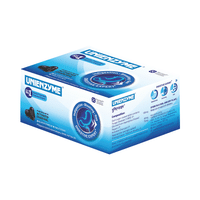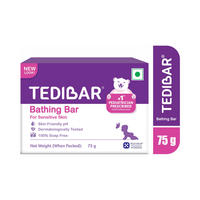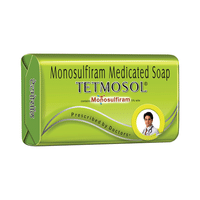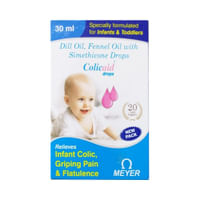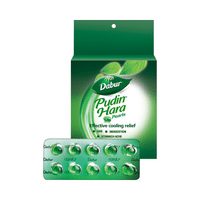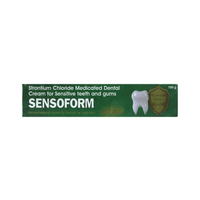Virrox Syrup
Rs.33.90for 1 bottle(s) (30 ml Syrup each)
food interaction for Virrox Syrup
alcohol interaction for Virrox Syrup
pregnancy interaction for Virrox Syrup
lactation interaction for Virrox Syrup
food
alcohol
pregnancy
lactation
Virrox Syrup is to be taken empty stomach.
None
None
CAUTION
Consuming alcohol with Virrox Syrup does not cause any harmful side effects.
SAFE
Virrox Syrup is generally considered safe to use during pregnancy. Animal studies have shown low or no adverse effects to the developing baby; however, there are limited human studies.
SAFE IF PRESCRIBED
Virrox Syrup is safe to use during breastfeeding. Human studies suggest that the drug does not pass into the breastmilk in a significant amount and is not harmful to the baby.
SAFE IF PRESCRIBED
SALT INFORMATION FOR Virrox 50mg Syrup
Roxithromycin(50mg)
Virrox syrup uses
{med_name} is used in the treatment of bacterial infections. It is used in infections of tonsils, sinus, ear, nose, throat, skin and soft tissues and lungs (pneumonia).
How virrox syrup works
Virrox Syrup is an antibiotic. It works by interfering with the synthesis of essential proteins required by bacteria to perform important functions. By doing so, it stops the infection-causing bacteria from growing further and prevents the infection from spreading.
Common side effects of virrox syrup
Nausea, Vomiting, Diarrhea, Rash, Headache, Dizziness, Flatulence, Itching, Pseudomembranous colitis, Stevens-Johnson syndrome, Toxic epidermal necrolysis, Epigastric pain, Decreased appetite, Urticaria, Angioedema (swelling of deeper layers of skin), Increased white blood cell count (eosinophils), Bronchospasm, Hallucination, Confusion, Increased liver enzymes, Hypersensitivity, Paresthesia (tingling or pricking sensation), General discomfort, Candidiasis, Pancreatic inflammation, Prolonged QT interval, Deafness, Hearing loss, Vertigo
SUBSTITUTES FOR Virrox Syrup
21 Substitutes
21 Substitutes
Sorted By
 Rs. 25save 28% more per ml of Syrup
Rs. 25save 28% more per ml of Syrup Rs. 35same price
Rs. 35same price Rs. 35same price
Rs. 35same price Rs. 17.22save 50% more per ml of Syrup
Rs. 17.22save 50% more per ml of Syrup Rs. 36.65pay 4% more per ml of Syrup
Rs. 36.65pay 4% more per ml of Syrup
Expert advice FOR Virrox Syrup
- Your child must complete the entire course of Roxithromycin. Stopping too soon may cause the bacteria to multiply again, become resistant, or cause another infection.
- Encourage your child to drink plenty of water in case diarrhea develops as a side effect.
- Conditions like common cold and flu are caused by viruses. Never use this medicine for such conditions.
- Never give or share Roxithromycin with anyone else, your doctor has specifically prescribed this medicine for your child’s condition.
- Stop this medicine and immediately report to your child’s doctor in case your child develops an itchy rash, facial swelling, or breathing difficulties while taking this medicine.
Frequently asked questions FOR Virrox 50mg Syrup
Roxithromycin
Q. What if I give too much of Virrox Syrup by mistake?
Virrox Syrup is unlikely to cause any harm if an extra dose is given by mistake. However, if you think you have given too much of Virrox Syrup to your child, immediately speak to a doctor. Overdose may cause unwanted side effects and may even worsen your child’s condition.
Q. What are the serious side effects of Virrox Syrup?
Some serious side effects of this medicine include severe gastrointestinal infections (superinfection), severe allergic reactions, liver infections, blood infections, and heart conduction abnormalities like QT prolongation due to arrhythmia. Always consult your child’s doctor for help in such a situation.
Q. Can other medicines be given at the same time as Virrox Syrup?
Virrox Syrup can sometimes interact with other medicines or substances. Tell your doctor about any other medicines your child is taking before starting Virrox Syrup. Also, check with your child’s doctor before giving any medicine to your child.













